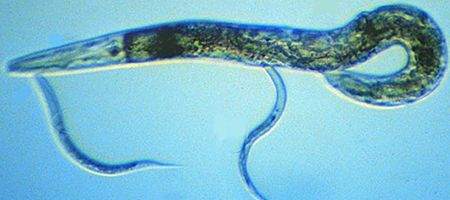Millions of microscopic worms are helping scientists overcome the threats posed by space travel to astronauts’ health, and could also help prevent muscle degradation in the elderly.

The Caenorhabditis elegans worms were flown into space onboard the Space Shuttle Atlantis, spending 11 days in orbit onboard the International Space Station.
Nottingham University physiologists were studying the effectiveness of RNA interference (RNAi), a technique for regulating gene expression in diseased tissue. And they found that it appears to work normally in space, meaning it could be used to reduce or control the dramatic muscle loss experienced by astronauts during spaceflight.
“It was really a quite straightforward experiment. Once the worms were in space the scientists onboard the International Space Station treated them with RNAi and then returned them to us for post flight analysis,” says Dr Nathaniel Szewczyk from the university’s Division of Clinical Physiology.
“These results are very exciting, as they provide a valuable experimental tool for spaceflight research and clearly demonstrate that RNAi can be used effectively to block proteins which are needed for muscle to shrink.”
RNAi is already the subject of more than a dozen clinical trials, targeting illnesses ranging from cancer to asthma. The researchers say this latest discovery will also help people who suffer from muscle wasting caused by illness and old age.
The findings, says colleague Timothy Etheridge, were “a very welcome surprise.”






